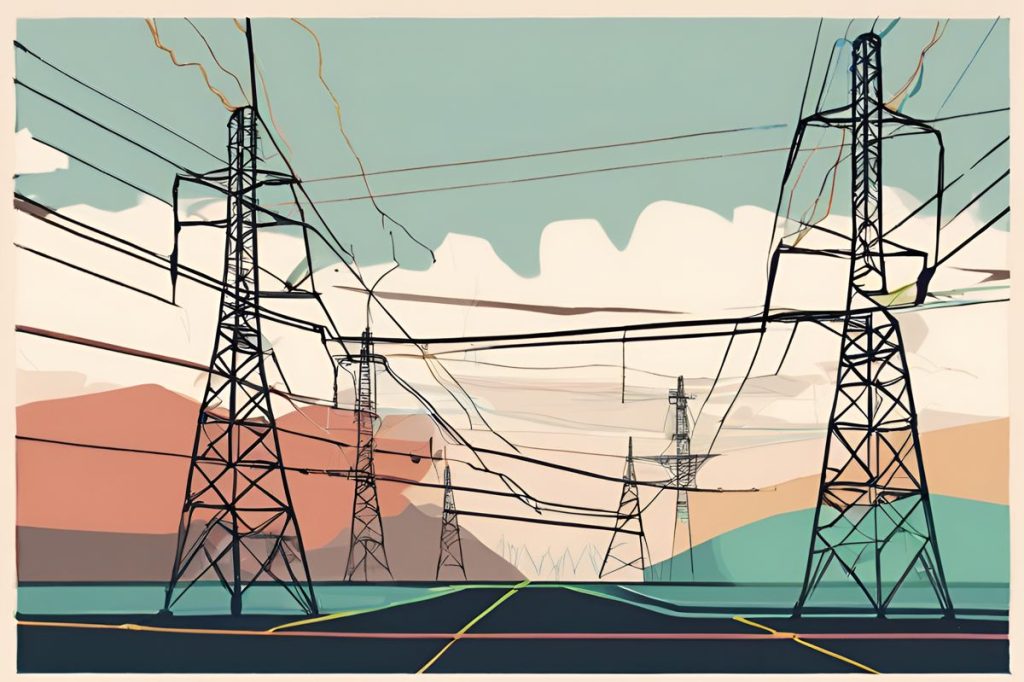Kib-Tek, the north’s electricity authority, may terminate its 15-year contract with the Turkish company Aksa due to delays in delivering a feasibility report for a vital subsea cable connecting Cyprus and Turkey, as specified in Article 20.3 of their agreement. Amid rising tensions over alleged contract breaches and energy challenges, the fate of the ambitious interconnection project hangs in the balance, sparking political controversies in the Turkish Republic of Northern Cyprus.
Can Kib-Tek Terminate Its Energy Contract with Aksa Due to Subsea Cable Delays?
Yes, Kib-Tek is entitled to terminate its 15-year contract with Aksa if obligations are not met, including delivering a feasibility report for a subsea cable within a year. A delay past 55 days gives Kib-Tek this right under Article 20.3 of the agreement.
Potential Contract Termination Over Subsea Cable Delays
Within the energy sector, contractual disputes can lead to significant delays in project implementation. A current example involves Kib-Tek, the north’s electricity authority, and its entitlement to terminate a 15-year procurement contract with Aksa, a Turkish energy company. The contract, which has been a subject of contention, specifically addresses the development of a subsea electricity cable proposed to connect Cyprus to Turkey. Tuluy Kalyoncu, the former chairman of the Kib-Tek workers’ union El-Sen, highlighted that Aksa had failed to deliver a feasibility report for the cable, which was due within a year of the contract’s start date on August 1 of the previous year.
With a delay now extending beyond 55 days past the due date, there is increasing scrutiny over Aksa’s commitment to the contract. According to Article 20.3 of the agreement, Kib-Tek holds the right to terminate the contract should Aksa not fulfill its obligations. This development underscores the complexities and potential consequences of contractual breaches within international energy agreements.
Controversies Surrounding the Kalecik Power Plant
The relationship between Kib-Tek and Aksa extends beyond the subsea cable matter. The controversial procurement deal also binds Kib-Tek to purchase energy from Aksa’s Kalecik power plant until 2038, with payment required in US dollars. A significant issue that arose was Aksa’s supposed commitment to enhance the power plant’s capacity by 35 megawatts. However, there have been claims that a generator Aksa delivered to the site in January, stated to be new, was in fact 25 years old. This revelation has cast doubt on Aksa’s practices and the integrity of their equipment provisions.
El-Sen’s current leader, Ahmet Tugcu, referred to the contract as a betrayal, echoing the sentiment of unfairness felt by some quarters. The sense of grievance was further exacerbated when Ayer Yarkiner, chairman of the Cyprus Turkish Chamber of Mechanical Engineers, revealed that Aksa’s profits in Cyprus had surpassed $1 billion since the year 2000, raising questions about the profitability balance of the deal.
The Ambitious Interconnection Project
In July of the preceding year, an ambitious agreement was signed by Turkish Vice President Cevdet Yilmaz and the north’s ‘prime minister’ Unal Ustel concerning the construction of the interconnecting electricity cable. The cable’s completion date was projected for 2028, with Aksa granted exclusive operating rights. At the time of the signing, statements were made promising swift progress toward the actualization of this long-held dream within the Turkish Republic of Northern Cyprus (TRNC).
Despite the initial optimism, including Vice President Yilmaz’s recent assurances that the cable would completely solve the north’s energy issues, there have been no updates on the timetable since the previous December, casting doubt on the project’s current status and future.
Current Energy Challenges and Political Implications
The stalling cable project comes at a time when the north faces severe energy problems, particularly with the challenges at the Teknecik power station near Kyrenia. To maintain a stable power supply, the Kib-Tek authority has been financially strained, needing to allocate millions of euros each month. This situation has stirred political controversies, as El-Sen leader Tugcu revealed plans by the ‘government’ to introduce a 15 percent increase in electricity tariffs. This intended price hike has been postponed, allegedly due to the timing of the National Unity Party’s conference, a decision criticized by Tugcu, who accused the ‘government’ of neglect and sabotage.
These developments in the energy sector reflect not only on the technical and logistical aspects of international energy contracts but also on the political ramifications that can arise from such high-stakes agreements.
FAQ
Can Kib-Tek terminate its energy contract with Aksa due to delays in the feasibility report?
Yes, Kib-Tek can terminate its 15-year contract with Aksa if the feasibility report for the subsea cable is not delivered within the stipulated time frame. According to Article 20.3 of the contract, a delay of more than 55 days past the due date gives Kib-Tek the right to terminate the agreement.
What are the implications of Aksa’s alleged contract breaches?
Aksa’s alleged breaches, particularly the failure to deliver the feasibility report and concerns regarding the age of equipment at the Kalecik power plant, have led to significant scrutiny and dissatisfaction. This situation has raised doubts about Aksa’s commitment to fulfilling contractual obligations, which may jeopardize the ambitious interconnection project between Cyprus and Turkey.
What challenges is Kib-Tek facing regarding energy supply?
Kib-Tek is currently facing severe energy challenges, especially with the Teknecik power station. The authority has been financially strained, needing to allocate millions of euros each month to maintain a stable power supply. This has led to political controversies, including discussions about potential electricity tariff increases, which have faced criticism from union leaders.
What is the status of the interconnection project between Cyprus and Turkey?
The interconnection project for the subsea electricity cable, which was initially projected for completion by 2028, is currently stalled. There have been no updates on its progress since December, raising concerns about the project’s future and the Turkish Republic of Northern Cyprus’s energy stability. The lack of timely updates has led to skepticism regarding the feasibility of the proposed solution to the region’s energy issues.

